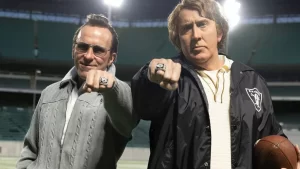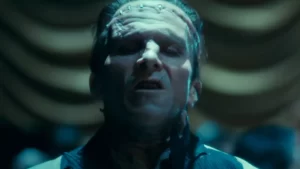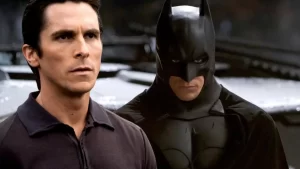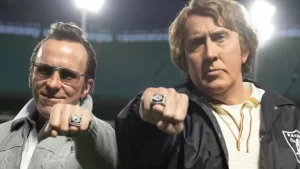Beyond a Knockout, It’s an Alpha Strike
A Film Review of The Fighter
By: Lawrence Napoli
What is it about boxing films? They all seem to have an uncanny ability to make the culture that surrounds a dead sport both dramatic and interesting; you know, that which boxing is not in the United States today. When Rocky won the Academy Award for best picture in 1977 it not only spawned one of the most successful film franchises of all time, it also created a reliable story telling formula that brings dollars to the box office. The formula, of course, is the masking effect, or as Hitchcock might refer to it as an extended “MacGuffin.” Masking a boxing film as something else: like a hybrid redemption/romance story with Rocky, allows the story to unfold outside of the ring and expose every corner of the lives and lifestyles of very unique individuals that are more often than not, inspired by real life fighters and their entourages. People like learning about eccentric personalities like some professional boxers because it gives them a means of comparison to their own lives and as the film unfolds, it creates a clever means of identification. The Fighter is another fine example of this particular formula at work and as a result, several aspects of the story seem all too familiar to an educated audience: impoverished upbringing, some personal internal struggle, training montages. In a lesser film, these themes would be critiqued as a glaring weakness; attempting to recapture lighting in a bottle with a fly swatter and a catcher’s mitt. The Fighter manages to refine the formula with the aid of one of the finest ensemble performances this side of Inception. It’s just a shame that incredible stories like this cannot lift boxing as a sport up to some level of its former prominence. I highly recommend those who run boxing to call up David Stern in order to learn how to promote their sport.
The Fighter is a drama based on the real life professional boxing rise of Micky Ward during the 1980s. What separates this particular boxing story from Rocky and Raging Bull is the thematic focus on toxic family dynamics that was integral to Micky’s failures and successes as he strove to become a champion. Micky’s family was in the business of boxing, reaching some level of success when Micky’s older brother, Dicky Eklund challenged Sugar Ray Leonard and managed to “knock down” the boxing legend at one point during their bout. Unfortunately, the roles that people assume in a family tend to remain static, even when the family’s function extends to activities beyond ballgames and barbecues. Basically, moms and dads will always maintain some level of authority over their kids, first born children will always get preferential treatment, the youngest will be adored and middle children tend to be afterthoughts. Micky gets a healthy dose of the aforementioned “afterthought” effect despite the fact his career was a meal ticket the rest of the family was cashing in on.
I was yet again surprised to find that this story was adapted in such a quality manner by a team of relative novices in the field of screenwriting: Scott Silver and Eric Johnson. They were joined by Paul Tamasy whose writing experience comes from the highly successful Air Bud franchise and its several direct to video releases. I am pleasantly surprised to hear that new blood is funneling into the Hollywood machine when the end result is a screenplay riddled with subplot, compelling characters and a theme that is as provocative today under any circumstance as it was back then for Micky Ward’s specific circumstance. These are the kinds of stories that make great Hollywood films and we are better as a society to have them known by a greater percentage of our populace. What do you do when someone in your family, whom you love dearly, leads a life that is not only self-destructive, but drags you down with them? The Fighter poses this question specifically and the conclusions that Micky comes to are as difficult and heartfelt as the series of unfortunate events that led to them. The sheltered few who may be turned off by a more realistic presentation of complex family dynamics, need not attend this film. As Micky finds out for himself, truly opening one’s eyes to what is actually happening is not always a pleasant experience.
Sometimes I am quite impressed with how a collective of producers is able to make meager budgets stretch beyond their reach. $25 million dollars, or thereabouts, was the cap for this particular down to Earth drama, but what surprised me even more than the dollar to end film quality ratio was the individual who led the team of executive producers. That gentleman would happen to be Mr. Darren Aronofsky; you’ll remember him as the director (perhaps co-writer) of this year’s very popular and Oscar worthy film, Black Swan. Darren’s influence in these two major contenders has already left his mark on 2010’s year in Hollywood filmmaking and the ability to juggle multiple responsibilities among multiple films is only impressive if it is recognized by the viewing public; which is why I present this information to you. Of course, being a producer does not require the same kind of production time commitment as being the director, thus Aronofsky needed a director for this project in his stead. Here is where I sense the influence of actor/writer/producer (or just really trying his best to separate himself from his “Marky Mark” days) Mark Wahlberg who more than likely slipped Aronofsky the name of David O. Russell whom Wahlberg worked with on Three Kings (1999) and then on I Heart Huckabees (2004). Russell is more than an adequate choice for dialogue driven drama which is perhaps one of the reasons why we do not see an overwhelming amount of boxing action during The Fighter. As any true professional, Russell caters to his strengths by giving the audience a plethora of dialogue and non-dialogue shots that reveals his characters gradually. The little twist concerning the camera crew that follows Dicky Ecklund throughout the film is an excellent example of this.
When all a film has to intrigue an audience happens to be a good story and charismatic characters (and not CG, explosions and action), it leans heavily on the performance of its cast. The Fighter has a cast that does the entire community of Lowell, Massachusetts incredibly proud not just in their overall mastery of the quintessential Boston accent, but the fact that no one overacts and every actor makes the most of their subtle pauses in dialogue to heighten dramatic tension. The biggest surprise in this film is the performance of Melissa Leo playing the role of the Ecklund/Ward family matriarch, Alice Ward. Melissa is no stranger to these types of heavy handed dramas as her extensive career has seems to gravitate towards slightly innocuous, but usually engrossing projects like Frozen River (2008) and 21 Grams (2003). Not many films (Independent or Hollywood) even address the issue of matriarchy let alone get knee deep into it the way The Fighter does. A traditional interpretation of a matriarch is one that is authoritative and very assertive and Melissa Leo’s performance clearly relays that without crossing the line of playing her character as a typical male. The Alice Ward character leaves a lasting imprint on the audience because she is equal parts endearing and repulsive. I venture a guess that Melissa tapped deeply into her well of maternal frustration to define the true nature of the matriarch which is a delicate balance between unquestioned love and an iron will.
Amy Adams is one of the few American actresses that truly want to accept the torch that is being handed down from Meryl Streep as an annual Oscar threat and legitimate challenger in a category that has been dominated by British actresses such as Kate Winslet and Cate Blanchett. Her performance as Charlene Fleming (Micky Ward’s girlfriend) is as assertive as the Alice Ward character which sets quite a satisfying stage for the struggle over Micky Ward’s affection. Adams displays exceptional poise in her ability to engage Melissa Leo and any other character’s negative confrontation by elevating Charlene’s status to a level that comes off as Micky Ward’s personal body guard. The Charlene character is very protective of Micky Ward in a loving way as opposed to a controlling way which conflicts directly with Alice Ward. What makes Adams’ performance uniquely satisfying is that she does a fine job of selling an instant switch in demeanor between lover and watch dog. Of course, the loyalty that is evoked from Adams’ performance is only sincere to an audience with legitimate chemistry onscreen with Mark Wahlberg. Amy accomplishes this by dialing back her assertiveness to an almost maternal level of concern to match Wahlberg’s extreme sensitivity. Both Charlene Fleming and Alice Ward represent a wide range of emotions for a talented actress to explore and I would be stunned if either Adams or Leo left the Academy Awards empty handed for their supporting roles.
Mark Wahlberg continues to impress as a reliable actor with his performance as Micky Ward. In a way, this role is a microcosm of his Hollywood career thus far: a significant draw to whatever production he is attached to, yet frequently playing second fiddle to either a greater actor or a greater performance. Several examples can be plucked from his filmography but The Departed (2006) and The Perfect Storm (2000) are two of the most notable. It is quite surprising that Wahlberg once again assumes the “Will Riker” (ahem, ALWAYS second in command of the Enterprise behind Picard) role in yet another Oscar contender. Perhaps this pattern of roles that Wahlberg accepts is more indicative of the core trait of his acting prowess: he is genuinely a sweet, sensitive guy. Thus, it is no coincidence that every scene he has with Amy Adams to project despair and disappointment in his character is an absolute gem while every moment Micky is meant to be finally taking control of his life comes off as semi-sincere. In order to elevate his performance as a true alpha actor, Mark Wahlberg needs to be able to project the difference between aggression and command in an acting performance. He would do well to carefully examine the body of work from his co-star who also happens to steal every scene in The Fighter.
Christian Bale will win his first Academy Award for best actor in a supporting role as Dicky Ecklund in The Fighter. Anything less for this actor on Oscar night would be highway robbery followed by multiple stab wounds to his back and the eventual killing of his dog. Mr. Bale does tend to take every opportunity to paint himself as a true misanthrope in real life as evidenced by his multiple social conflicts, and this kind of behavior can make it difficult for any evaluation process to separate the art from the artist. Perhaps we can look to Marlon Brando as the best example of eccentricity yielding excellence, but even I would like to see Christian dial down on the ruckus so that I can appreciate his performances more. Despite all of that, Christian Bale produces an entrancing performance as a crack addicted former boxer who has all manner of difficulty in reconciling a failed life with his brief moment of glory. Bale masters an ability to project utter denial in a character that is enraptured with addiction. At the same time, he is able infuse instant charm and levity with every other character he interacts with because being the center of attention is a core motivation for Dicky Ecklund. I don’t believe I have ever seen Christian Bale smile with such sincerity in any of his previous films. Bale is the very essence of the big brother, uncle or father figure that everyone is drawn to at family gatherings. One desires to love that type of person so much that one is compelled to overlook the obvious danger of addiction which is a legitimate behavioral pattern for families dealing with substance abuse in the real world. What makes Bale’s performance even better is the fact that this man is nowhere near his peak as an actor. I see his talent as a gateway for genres like action adventure and sci-fi to continue to gain legitimacy in the eyes of all film critics with his ability to bring unparalleled intensity to every role he plays.
The Fighter is an excellent film and the best drama of this past year. This film has several advantages over its competition for best picture in that it was released later in the year and thus fresher in people’s minds, dealt with a very personal and relevant subject matter that the vast majority of the viewing public can identify with and features sterling performances from every member of the cast. As a critic, I was equally impressed with the lasting impression that The Fighter and Inception left as I consider these two films to be the only choices for best picture. Both films were equally impressive in regards to story, performance, and direction with one specializing in exposing the emotional while the other showcasing the technical. Based on the history of Academy voting, The Fighter has a clear advantage. In a year of filmmaking that I consider to be not up to par, these two films are not to be missed and worthy of every dollar you spend.







